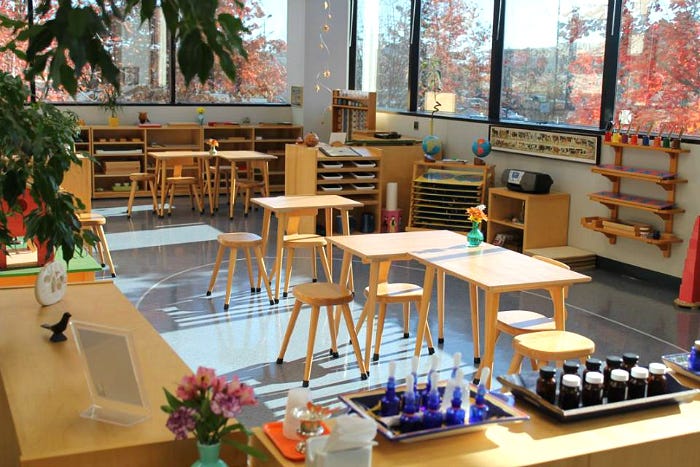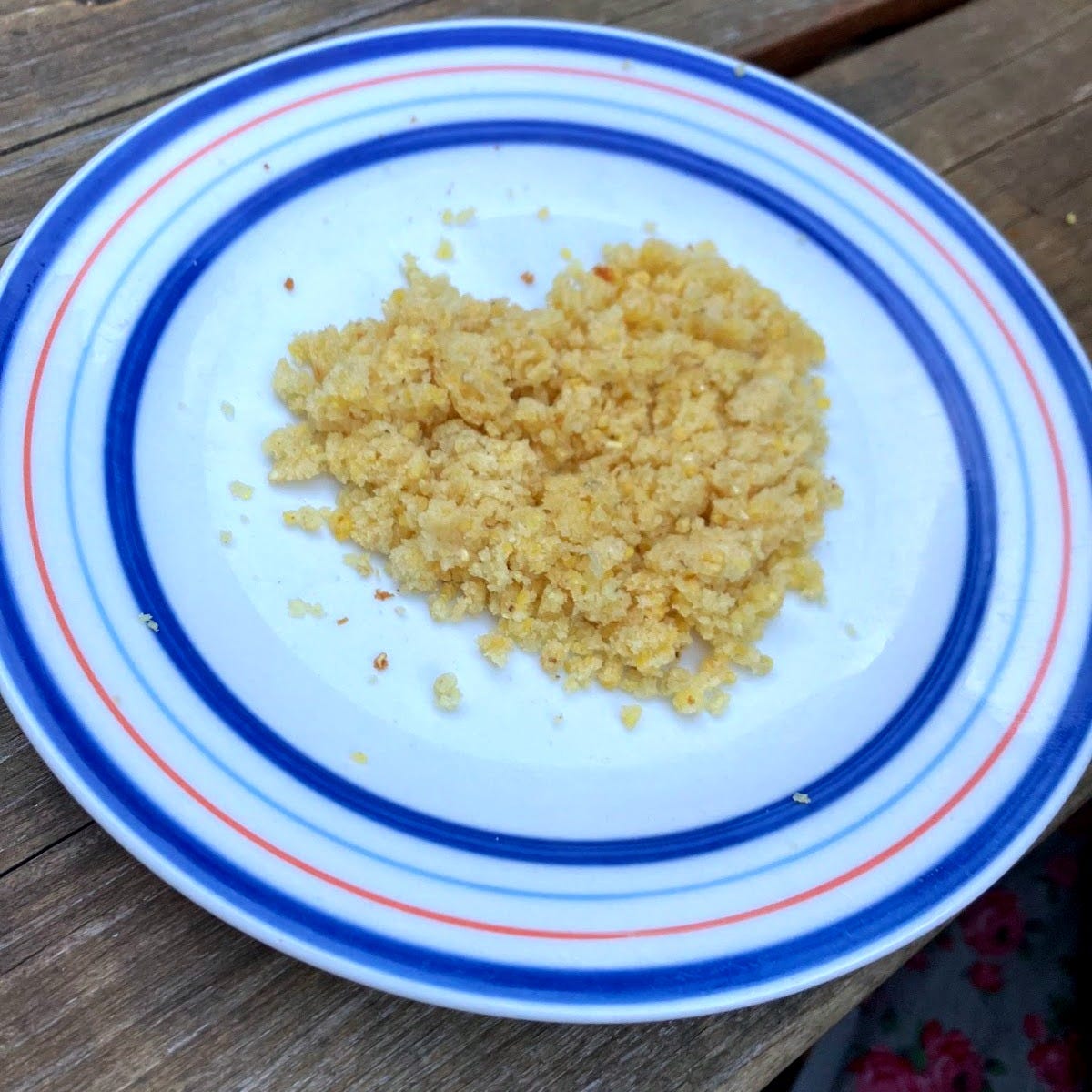I was on the Integrated Schools podcast!
You know how a while back I announced that I was going full time with The Auntie Bulletin “and related projects”? Well, one of my related projects is the work I do as an educational researcher. After I finished my PhD, I didn’t pursue a tenure-track job in my field because I didn’t want to leave Seattle and anyway, the academic job market sucks. But I did keep working on some research projects that I care about, purely as a labor of love.
The closest project to my heart these past few years has been an exploration, with my colleague and lifelong friend Dr. Stephanie Forman,1 of how parents choose schools for their kids. As you know, I’m really interested in our responsibilities to other people’s children, and this preoccupation is front and center in our research. Basically, what we’re interested in is how parents weigh their responsibilities to other people’s children with their responsibilities to their own children.
A main place this comes up is in choosing a school for your kid. A lot of parents with strong commitments to their communities and the public school really believe in public schools, but also — real talk — they worry their own local public school might kind of suck. They worry their kids will be unhappy there and they won’t get a good education. In the United States in particular — but probably lots of other places, too — it’s private education that’s held to be the gold standard for schooling. Our dominant cultural narrative holds that in private school (and in many places, private school only) you’ll get loving, well-prepared teachers who nurture fun, creative, and flexible learning among small groups of students, ideally in a classroom with bright natural lighting, lots of plants, and high ceilings.

At the same time, many parents truly want to support their local public schools. They believe in the importance of free public education for every child, they want to know their neighbors, and they want their own kids to get to learn alongside kids who may have very different lived experiences from their own. Even if parents have the means to opt for private school, some choose public school out of a strong commitment to the public sphere and a desire to direct their resources in a way that will benefit all kids. Researchers call these “opt in parents.”
My colleague Stephanie and I identified a subset of such parents, whom we term “reluctant leavers.” These folks started out as opt in parents but had to bail to private school when the going got rough (often very rough) for their kids.
To tell you the truth, at first we were really judgmental of these parents. It felt like a lot of our progressive, community-minded friends, including a lot of professors who research and write about the importance of public education, were moving their kids to private school, and we thought they were being hypocrites. Stephanie — a public school parent — also felt abandoned by a lot of our friends. So we figured we’d do a research project and find out what was going on, and along the way we became a lot less judgmental of parents who make this choice. We also wound up thinking a lot about how all parents can support public schools, even if they’ve withdrawn their own children from them.
We went on the Integrated Schools podcast to talk about our research with the utterly lovely hosts Andrew Lefkowits and Dr. Val Brown. These two are incredibly thoughtful and generous, and it was a delight to talk with them.
You can listen to the episode here. Or if you’re like me and you only ever want to read things, scroll down on the episode page to find the transcript.
Finally, if for whatever reason this episode gets you “in your feelings,” as host Val puts it, I’d love to hear about it. You can leave a comment or email me directly at auntiebulletin at gmail dot com. Our line of thinking here is an ongoing work in progress, and it always gets better when thoughtful people weigh in — even if (or especially if) they disagree with us.
Nothing Sold, Bought, or Processed
The Auntie Bulletin is an ad-free, anti-capitalist publication that will never try to sell you anything and receives no money from affiliate links. I can only offer it if readers like you make modest donations to keep the lights on. If you appreciate what you read here, please take a few seconds right now to become a paid subscriber.
Stephanie and I have known each other since elementary school. We were on the swim team together for years. It was a total coincidence that we both got our PhDs in education from the same institution around the same time, which was where we finally became really good friends.






Wow thanks for sharing this. I do have a lot of feelings popping up for me and I'll try to reflect with them here. I'm a white mom who chose a coop school for my Kindy kid this year. (Spoiler alert it didn't work out but I'll say more below).
One piece I feel is that I'm just tired as a mother of three without aunties or family around. I just don't have a lot in me to change the whole system of schooling to be less 1950s assembly line and more human. And, I am in an area where I can't shop around for public elementary options. They do a lottery in K and you can choose between language schools and there's a semi Montessori option that starts only at prek3 for 2 hours a day (good luck if you need full days). You can't opt in to any of them later. To me these choices feels like leaving your community school in the same way as private because you aren't building into something that connects you to your neighbors, the schools are county wide lotteries. These schools get funding and then people drop out, move away, and the school gets smaller classes and still more resources. Or the tag school by us has so much more funding than our local elementary school. What is happening?? (There are others but they are even further away so I mention the ones by us.)
My kid is neurodivergent and I think the classroom setting itself is overwhelming to him. I tried a smaller school with more outdoor time. Honestly, looking at my kids' brain has taught me about mine and I do think a lot of my public school experience was really internalized traumatic. I did well... at a cost.
I am my child's advocate in this iteration, and I just don't feel like we're going to get support in a time of cutting funding and focusing only on academic disability (what I'm hearing from the school). My husband wants to try the public school next and I'm really nervous about what it's going to do to our family system through his reactions at home.
And, I’ve been working with the local school PTA for 2 years to build a school garden. You don’t have to be a parent to join the pta, our broader communities could join to build better schools, for those interested!
And, thank you for pushing me on this. There's a big space between in theory and in practice and we need a community to lift the middle.
I chose homeschooling for my oldest - actually, it was supposed to be temporary while we waited for a spot at a public charter. They didn’t get in, but after a few months we didn’t care bc we discovered the secular homeschooling community.
Here in Northern VA - in the wealthiest county in the nation - the public schools are considered excellent. My husband and I are products of them! But as we’ve gotten deeper into home ed, we’ve found a diverse and progressive community of parents who add so much to our own lives, as well as our kids’. It’s been interesting to see how some folks in the home ed community show up for public schools, and how some demonize them. Definitely a mixed bag, even from people who on paper seem like they’d be big champions of public education.
Looking forward to listening!